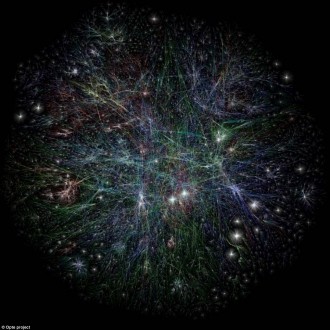A new report published in the Philosophical Transactions of the Royal Society says that most websites are connected in 19 clicks or less. Hungarian physicist Albert-László Barabási says the "close" connections are possible thanks to search engines, large aggregators and social networking sites.
The majority of pages on the net are only connected to those that have closely related content but its super sites like Google and Facebook that help pull those niche groups together according to the Smithsonian magazine.
It's quite a feat when you consider that there are more than 14 billion pages on the web - or more than two for every person on the planet - but surprisingly enough, this isn't the first time that the 19-click phenomenon has been discussed online.
A website called 19clicks.com made mention of the same idea several years ago. The author, Samantha Orme, said she created the domain "many moons ago" because 19 clicks was the average distance between any two pages on the Internet (much like six degrees of separation). For what it's worth, that page has posts dating back to December 2005.
Barabási is considered an expert in network theory and even published a book on the subject called Linked: The New Science of Networks back in 2002. He noted that during the 1990s as the web began to grow, it was thought that it probably had the properties of a random network. Of course we now know that simply isn't the case based largely on the researcher's own findings.
